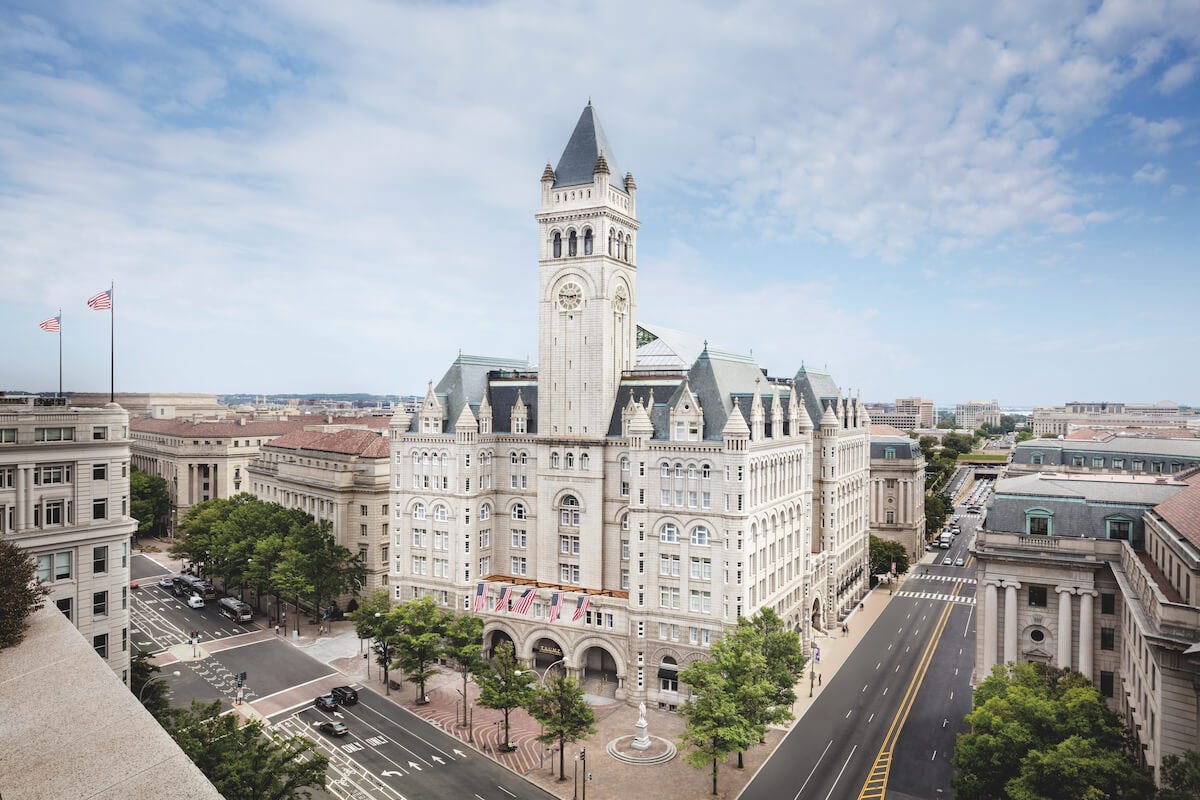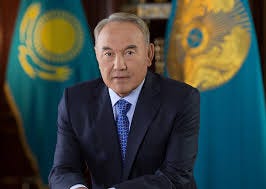Last week, Prof. Scott Galloway said on CNN that the rally in Tesla stock since Trump won the election, with Elon Musk’s backing, showed that “America has become a full kleptocracy like Russia.” While I agree that the moves in Tesla and other stocks like Palantir make sense only if investors believe the companies will be repaid with Federal contracts or regulatory help, this is a traditional part of our system and doesn’t rise to the level of kleptocracy. After many years investing in places like Russia and Central Asia, I think I can give some insight into what true kleptocracy is.
First, let’s consider the business-politics connections in our recent history. The GOP crusade against Hunter Biden, with his director fees from Burisma and a single phone call with Joe bemusedly saying hello, was a joke. There has been no evidence that Biden himself made money off his presidency; indeed, he seemed to enjoy alienating would-be oligarchs.
Closer to the mark were the Bush and Clinton families’ post-presidential dealmaking, using their contacts in places like Saudi Arabia and Kazakhstan.1 George H.W. Bush reportedly tutored Bill Clinton in the art of making “real money,” not Whitewater pennies, when they toured Africa on a mission. Clinton learned well and in the 00’s made a bundle on deals in places like Kazakhstan and Colombia.2
Cashing in after leaving the White House, in legal transactions that use connections made as president or in more transparent ways such as the Obamas’ media deals, is a tradition.3 Some would call this kleptocracy, but in my view it would only meet the true definition if the ex-presidents were still able to make policy.
Given this, The Clinton Foundation’s continuing global work after Hillary became Secretary of State was problematic. Bill Clinton’s very profitable Kazakh deal for a high-grade uranium deposit ended up with a transfer of U.S. uranium assets to a Russian company, approved while Hillary was in Obama’s cabinet.4 Also, foreign governments donated to the Foundation while she served. It has always been difficult to untangle the Foundation’s charitable activities from possibly profit-making ones – indeed, the conflicts were criticized by Chelsea Clinton herself. Still, as no charges were ever brought despite FBI investigations and a Republican party eager to find wrongdoing, the Clintons can’t fairly be called kleptocrats.
Maybe closest to the mark is securities trading by members of Congress which, owing to reporting delays and non-enforcement, resembles legalized insider trading.5 This is widespread in both parties, but most famously by the apparent greatest trader since Jesse Livermore, Nancy Pelosi – or rather her clerk (also husband) Paul. As reported by an X account tracker, Pelosi’s stock and option trades, worth tens of millions, gained 54% in 2024 and 700% since 2014. While she’s never been accused of insider trading, as with Madoff some returns seem too consistent to be fully on the square.
So is that kleptocracy? If Congressional policy were pervasively affected by the members’ stock trading, then yes, but we haven’t seen it at the Federal level other than in isolated cases. This may be because of the transparency rules, or because political power is so widely distributed through our Federal system. Still, the practice should be banned and Congressional salaries should be three times higher.
What About Trump?
U.S. presidents are supposed to divest their businesses to avoid conflicts, but in Trump’s first term he refused, transferring control to his children. He then made money traveling via his hotels, upcharging for the rooms occupied by Secret Service. While all of this smelled, if the only influence on U.S. policy was choice of hotel on an official trip, then the appropriate word is “grifting,” not kleptocracy. Congressional investigators estimate that foreign governments spent $7.8m on Trump businesses like his D.C. hotel during his presidency — but this was a small fraction of the companies’ total revenues and probably not enough to impact policy.
It’s hard to find any evidence that Trump, having left office under a cloud, did any genteel cashing in of the Bush-Clinton variety. Instead, he stuck with the grifting, selling sneakers, watches, etc., and seeking donations from his followers for campaigning and litigation defense. His venture Trump Media & Technology, aka Truth Social, may have attracted influence-seeking foreigners to its stock, but on its face is a legal and constitutionally-protected business for an ex-president.
Then there’s Jared Kushner, who retained his good international reputation and received a $2 billion Saudi investment into his fund. While, again, post-presidential deals are not new, the magnitude of this one stood out. Also, critics drew a line from Jamal Khashoggi’s murder and the administration’s muted reaction to it to a potential payback. Even still, not clear kleptocracy, as Trump would argue it was in America’s best interest to go easy on Mohammed Bin Salman and coincidental that this aided his family’s long-term business prospects.
Now, as the Trumps return to power and billionaires cycle through Mar-a-Lago to make nice, people like Galloway become nervous. For all these visitors’ companies government relations are key, and indeed Trump has threatened several in the past. Mark Zuckerberg, whose Meta has a major antitrust case coming up this year, has shown a much-improved attitude toward MAGA. Trump himself attributed this in part to his previous threats.
Then there’s Musk, who owns SpaceX, among the largest federal contractors. Trump could be helpful to SpaceX directly, or by assisting its subsidiary Starlink with the FCC or in getting it permission to operate in foreign countries.6 Trump could also be useful to Alphabet and Amazon, as both are also antitrust targets and heavily invest in AI, which will become a focus of regulation. The companies’ massive donations to Trump’s inauguration committee certainly means something.7
President Biden has called the tech titans around Trump an oligarchy, which sounds apt given their extreme wealth and power, especially over information. On the other hand, it’s not as if the major parties and incumbent media have heretofore been free of the influence of big business. The Democrats have blocked litigation reform, in part because trial lawyers are donors. Health insurers, lavish contributors to all, have experienced a profit windfall from Obamacare as it has been implemented. Arguably it would be better if our system didn’t allow corporations and lobbyists to “acquire” elected officials, but that’s how it is.
Real Kleptocracy
So, given the “constituent service” already permeating the basic business of Washington, D.C., what would cross the line into kleptocracy?
Galloway said we are already a “Russian kleptocracy,” which is a bit over-excited, but even if we turned into one, the current Russian version is unlikely. Kleptocracy under Putin (as opposed to the Yeltsin 1990’s) has been characterized by forced redistribution of assets, sometimes via arrests of recalcitrant owners, as well as theft from state enterprises. As many have observed, the Putin “vertical” operates like the Mafia, where tribute is passed up the chain and everyone is compromised.
Unlike Russia, the U.S. has strong institutions – separation of powers, a free press, and an independent judiciary – that prevent a corrupt system from flourishing, at least at the Federal level. These guardrails would be very hard for any President to dismantle even in two terms, and even with a compliant majority party, cowed media, and some partisan judges. As I noted above, power is simply too dispersed.
Instead, the kleptocracy that could occur here is more analogous to the Central Asian variety. In some countries, like Uzbekistan and Azerbaijan, this took the form of dumb tribute: bags of cash for favors. This is unlikely, given the transparency of our financial system, where we even know what options Pelosi traded, albeit with a lag.8
What could flourish though is corruption like that in Kazakhstan under its president from 1991-2019, Nursultan Nazarbayev. Nazarbayev’s three daughters and their husbands wound up with financial interests in much of Kazakh GDP and, while nothing was in the president’s name, it was understood that business at the heights of the economy usually cut in The Family, as it was called. With the creation of sovereign wealth funds, which at one point owned companies representing almost 25% of GDP, The Family and their associates gained even more levers of economic control.9
What made it kleptocracy was that ownership and control was not only pervasive but affected policy – and not always for the national good as, e.g., rent seekers entered the energy sector via Family-backed middlemen.10 Procurement practices at state-owned enterprises in the sovereign wealth fund were questionable. One problem with the corruption virus is that it spreads, as more businessmen find that the safest option is to run their assets in covert partnership with the kleptocrats. Kazakhstan functioned this way for years, but the arrival of The Family’s third generation – a new crop of rent seeking nephews and cousins – led the business elite to revolt in 2021, with help from a new reform-oriented president, Kassym-Jomart Tokayev.
A key way The Family obtained interests in, or functional control over, major assets was through privatization. Whether or not one ideologically supports privatization of government services like the post office, it creates kleptocractic opportunities that can be hard to undo. President Tokayev has managed to claw back pieces of corruptly privatized companies, but this has not been an easy process, even sparking an attempted coup in 2022 and necessitating imprisonment of certain Family members until they cooperated.
Another familiar practice in some former Soviet republics has been expropriation of foreign-owned assets in favor of local oligarchs, with two prominent recent cases being the forced sale of Danone and Carlsberg’s Russian assets to Putin allies. It’s likely in these scenarios that political insiders will share, not in their own names of course, in the resulting economic windfall. Can this occur in America? Who knows?
Perhaps anticipating how it all could end, in 2000 Nazarbayev got his Parliament to pass a law immunizing him and his family from prosecution except for high treason. In 2023, two years after Nazarbayev left power, the Constitutional Court annulled the law. Fortunately, no law so accommodative to kleptocracy could pass here – oh wait, I forgot, six Justices have already trumped Congress, ruling that a president can’t be prosecuted for “official acts,” whatever they may deemed to be.
What About Crypto?
A note on cryptocurrencies, which have rocketed since the election, first on the expectation of lighter regulation when SEC Chair Gary Gensler is replaced. I thought Gensler’s position on crypto was right, as I wrote in Crypto Fanatics Don't Understand What Crypto Is. Less regulation looks to me like open season for swindlers, which ultimately will undermine the entire asset class.11 Thus, I doubt that Gensler’s departure justifies the higher coin prices.
A more plausible reason I’ve heard is that “People coming into the White House own crypto and will make it go up.” One way people believe Bitcoin, for one, can be “made to go up” is by creation of a U.S. Strategic Bitcoin Reserve. However, given Bitcoin’s $2T market cap, this would move the needle only if the U.S. put a tremendous sum of real money into Bitcoin – which is hard to see Congress approving, when we have higher priorities and a big budget deficit. Also, at some level a U.S. investment in Bitcoin could boost its credibility as a competing reserve asset to the dollar – something Trump and his Treasury Secretary will not want to do.
What the recent optimism over crypto reminds me of most is a con I once saw run in Azerbaijan. Rumors spread that the Azeri President and his family were buying privatization vouchers from citizens and would put a chunk of state-owned assets into a voucher program, as Russia had done in 1994. Sophisticated Westerners were lured into buying vouchers at inflated prices, imagining they were standing alongside insiders in a corrupt scheme, but lost their money when little went into the program.
Buying Bit- or any other coin because a Trump family member may own it and may make it go up feels to me like a ticket to Azeri-style scamville. It also reminds me of the old saying, “You can’t cheat an honest man.”
I sound cynical in this post, but am as optimistic as ever about America. The genius of our system and the greatness of our people keep us moving forward, even when our leaders keep making the same mistakes. Coincidentally, my son wrote and recorded a terrific song by that name — check it out.
See Unger, House of Bush, House of Saud (2004)
See Schweizer, Clinton Cash (2015)
A recent post from the very fun Substack of
adds dimension to ex-presidents’ craving for wealth. Brown wrote that when the guest list for Barack’s 60th birthday party had to be reduced because of Covid, priority was given to those who could offer future rides in their private planes. A kleptocrat would have had his own plane after eight years in office. Joe Biden will be back on Amtrak.Cash Flowed to Clinton Foundation Amid Russian Uranium Deal, The New York Times (April 23, 2015). Note: the deal was also approved by CFIUS, separate from State Department approval, and Bill Clinton had already sold out of the uranium company years before (my fund, being stupid, failed to sell alongside Clinton and rode the stock all the way back down). Also, as the U.S. assets were of questionable value, the Russian company never developed them and later sold them to a U.S. company.
Members of Congress Again Outperformed the Stock Market, Report Shows, Fortune (January 8, 2025)
Italy announced a €1.3b deal with Starlink, which had been stalled, coincidentally the same day Prime Minister Giorgia Meloni visited Mar-a-Lago.
I won’t get into the subject of inauguration donations, of which Trump is said to be raising up to $250m, 5x Obama’s haul in 2009 and 4x Biden’s, mostly from billionaires and corporations. There’s no transparency as to what is spent and what happens to the balance, but a cynic might assume that some of the money falls off the back of the proverbial truck.
Rep. Mike Johnson is very unusual in that when he became Speaker he had no bank account. But then he’s from Shreveport where, per my Louisiana-native friend, bags of cash can still be found on politicians’ desks.
On February 3, President Trump signed an Executive Order with plans for the creation of a U.S. sovereign wealth fund.
Despite this, Kazakhstan’s performance in terms of GDP per capita and real wages has far surpassed its Central Asian neighbors, which may attest either to Nazarbayev’s balancing skill or the neighbors’ more thorough corruption and mismanagement. Kazakhstan has, however, underperformed former Soviet republics that evolved into largely non-corrupt democracies, e.g., the Baltic States.
When I wrote this, I didn’t predict that the $Trump family would be first out of the gate with a memecoin, but in hindsight it’s obvious. See Trump’s Crypto Venture Divides the Industry He Aims to Support, New York Times, January 25, 2025.








Good essay.
One unfortunate recent development is the growing cynicism in the American electorate about grift, and a reluctance to punish it at the ballot box. It is not yet the Russian/Ukrainian/Central Asian levels of cynicism, but it is more dominant than in the past (is that true?) or at least more pervasive than I would wish to see.
Very enlightening. Still, you have greater confidence in our “strong institutions – separation of powers, a free press, and an independent judiciary” - than I do at this precise moment. Cf. infra (“oh wait, I forgot, six Justices ….”).